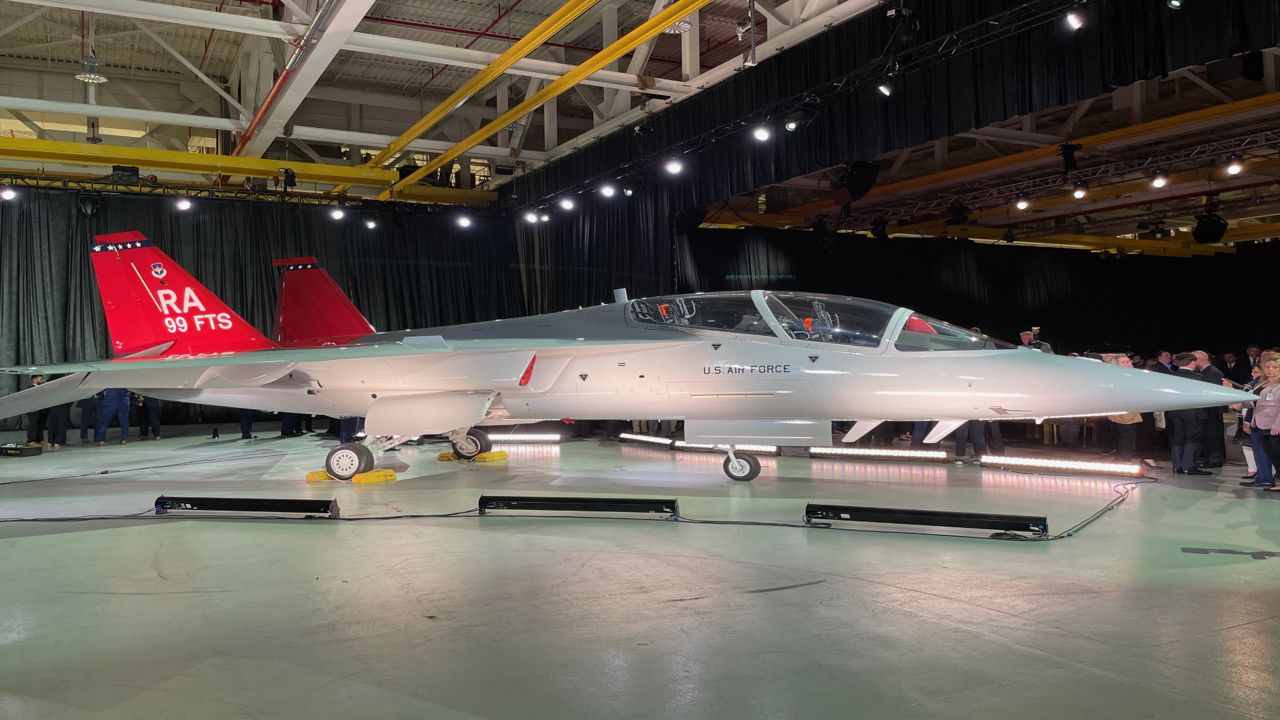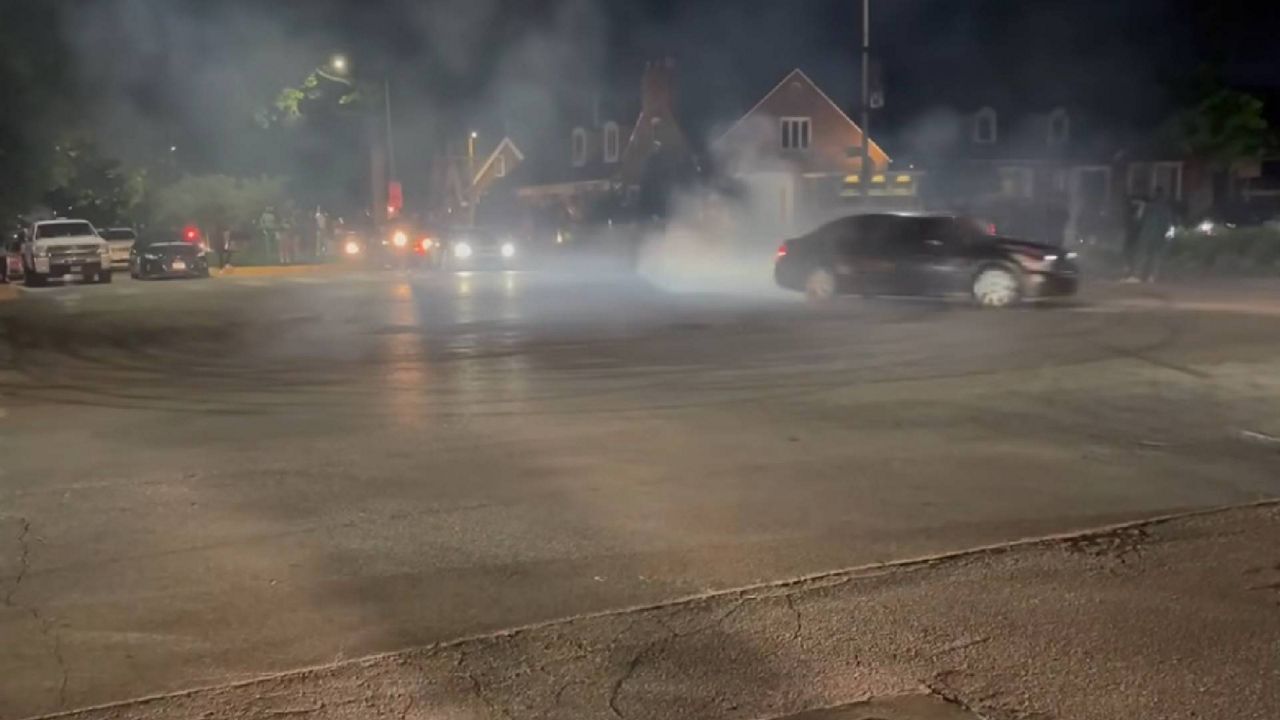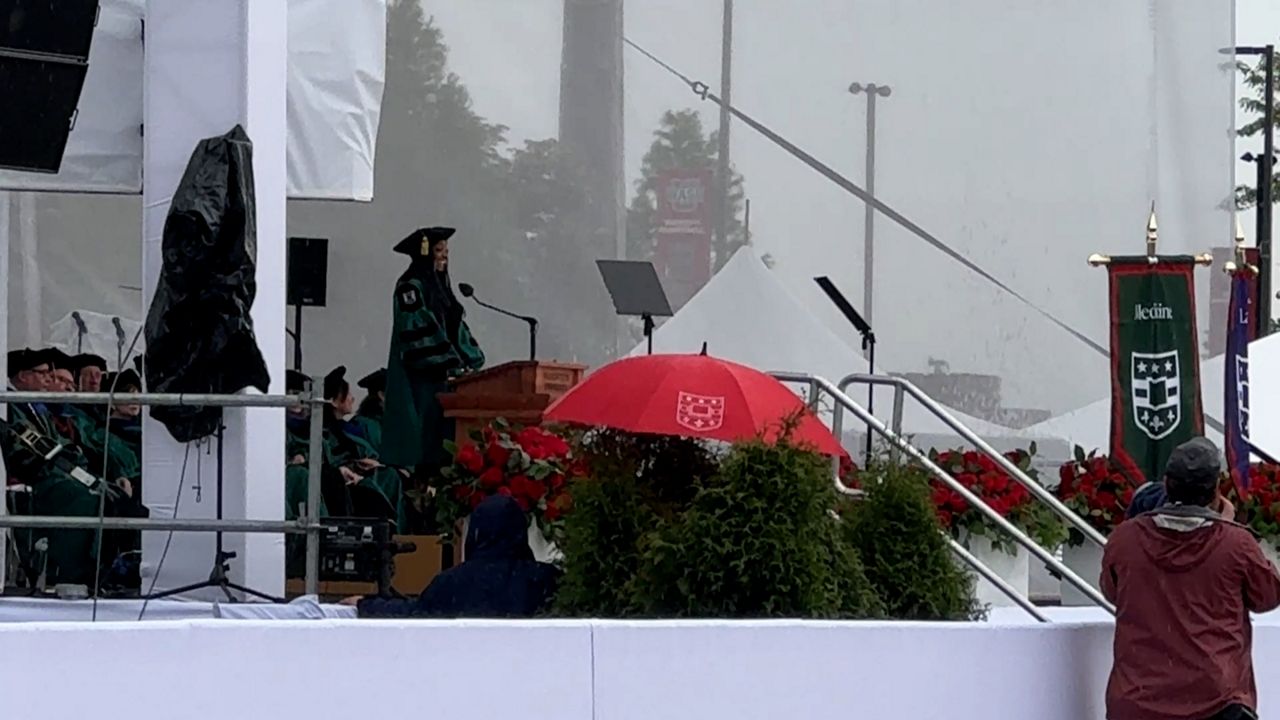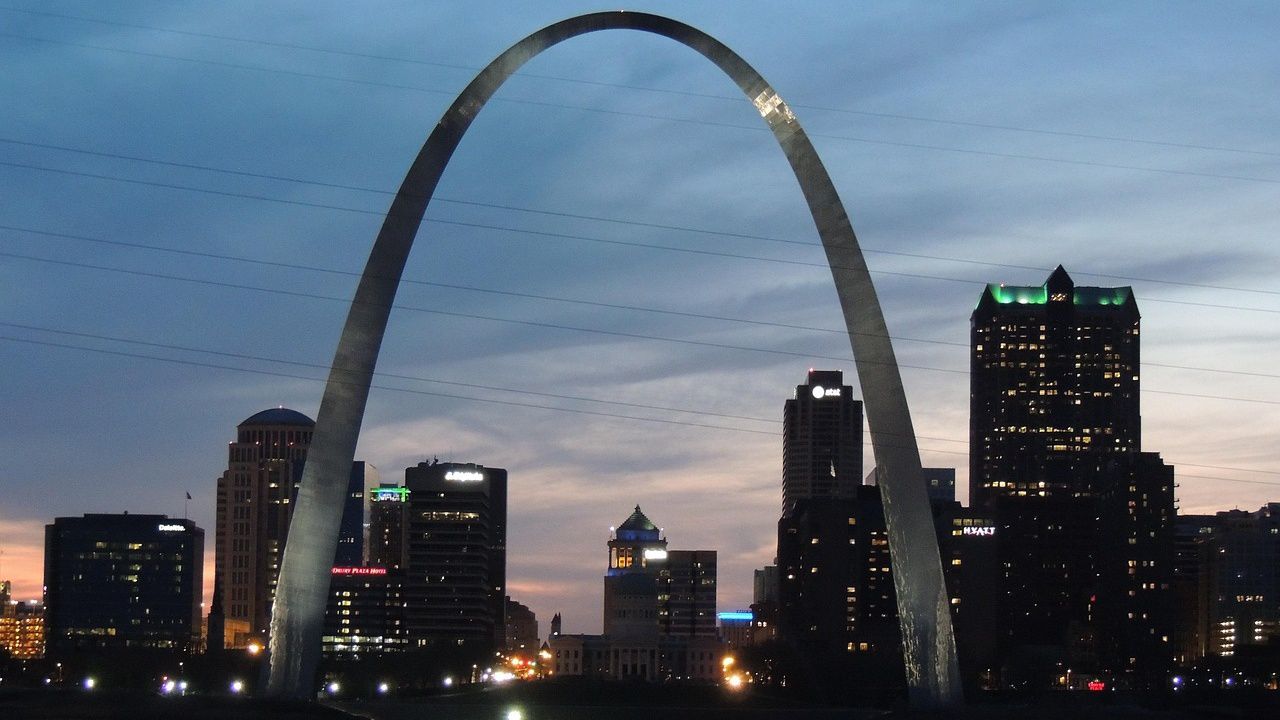HAZELWOOD, Mo–In a Thursday morning ceremony, Boeing unveiled the first of what will be 351 next-generation training jet to be delivered to the U.S. Air Force as part of $9.2 billion order. The T-7A Red Hawk, built at the company’s St. Louis county facilities, was feted for a digital design and construction process that was finished in three years, and for historical nods to the Tuskekee Airmen from World War II and the Korean conflict.
In the audience for the event was Ret. Lt. Col. George Hardy, a member of the Tuskegee Airmen who flew dozens of missions in Korea, and the family of the late Charles Brig. Gen. Charles McGee, one of the first African-American pilots and a fellow Tuskegee Airman who died in January.
The T-7A Red Hawk will succeed the T-38 Talon, which has been in use since 1961.
“It allows us to change products very quickly so you can train in many different fighter jets in this one plane so that is new and amazing and it will help our training colleagues move even faster,” Ted Colbert, Boeing Defense, Space & Security President and CEO told reporters.
The rollout came one day after the company announced a $367 million cost overrun for the project, citing supply chain issues, COVID-19 and inflation. When asked if those problems were behind the company now, Colbert said Boeing was focused on safety and quality in producing the aircraft.
Boeing employs 15,000 in the state of Missouri, and nationally, production of the T-7A is tied to 17,000 jobs. The rollout of the trainer comes as as the future of another St. Louis-built aircraft, the F-18 Super Hornet, is murky at least as far as the Air Force is concerned. Congress passed funding for 12 additional planes in the 2021 budget even as Navy officials have questioned the need to keep buying them.
The planes for the U.S. contract will still come off the St. Louis assembly line through 2025.
“We're still building F18s another amazing product that serves allies and warfighters here in the United States and we're working with our partners both domestically and around the world to work through that future,” Colbert said.
“Anytime we can get those military contracts we want to be very aggressive at it but not only for the product itself but who all the suppliers are. We're always looking trying to figure out how we can get them to come to this region and make them a little closer,” Missouri Governor Mike Parson said, when asked if he had spent any time with military brass lobbying on the future of the F-18. “We've got a great showcase, a footprint of how we're helping the armed forces in this country so I think we're going to have a fair shot at the new ones coming.”









